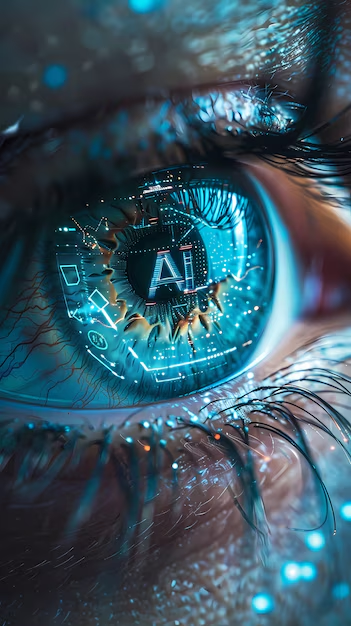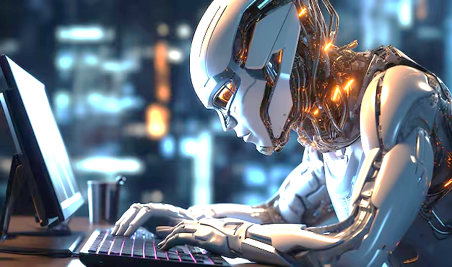The Impact of Artificial Intelligence on Business and Workforce Transformation
In today’s rapidly evolving digital landscape, Artificial Intelligence (AI) is no longer a futuristic concept—it's a present-day reality shaping the way businesses operate and transforming the workforce. AI technologies, from machine learning and natural language processing to robotics and automation, are being increasingly integrated into business operations, improving efficiency, enhancing customer experiences, and unlocking new revenue streams.
The Role of AI in Business Transformation
AI is revolutionizing various industries by driving innovation, optimizing processes, and enabling smarter decision-making. Companies across sectors are leveraging AI to automate repetitive tasks, improve operational efficiency, and deliver personalized services. For example, AI-powered chatbots are streamlining customer service by providing instant responses, while AI algorithms are enabling personalized marketing strategies based on consumer behavior insights.
AI also plays a critical role in data analytics, helping businesses analyze vast amounts of data in real time to make data-driven decisions. From predicting market trends to identifying inefficiencies in supply chains, AI tools empower businesses to stay ahead of competitors by delivering insights that were previously impossible to obtain manually.
AI's Impact on the Workforce
While AI promises to enhance business operations, it also significantly impacts the workforce. Automation and AI-driven technologies are reshaping job roles and creating new opportunities, but they also raise concerns about job displacement. Repetitive and manual tasks, such as data entry, inventory management, and basic customer service,
are increasingly being automated, leading to a shift in the types of skills required in the workforce.
On the flip side, AI is also creating new job categories. Roles in data science, machine learning engineering, AI ethics, and AI-driven design are on the rise as companies look to harness the power of these technologies effectively. Organizations are also investing in reskilling and upskilling initiatives, helping their employees adapt to the changing nature of work. By embracing continuous learning and innovation, the workforce can thrive alongside AI rather than be replaced by it.
Ethical Considerations and Challenges
While the adoption of AI brings tremendous opportunities, it also raises important ethical questions. Issues such as data privacy, algorithmic bias, and the potential for job displacement require careful consideration. Ensuring that AI systems are transparent, fair, and accountable is crucial in fostering trust among consumers, employees, and society. Companies must prioritize ethical AI practices to mitigate potential risks and build responsible AI solutions.
The Future of AI in Business and the Workforce
As AI continues to evolve, its potential to reshape business operations and the workforce is limitless. Businesses that embrace AI will likely see improved productivity, increased
competitiveness, and a greater ability to innovate.
At the same time, AI will drive the demand for a more skilled, adaptable workforce — one that is comfortable with emerging technologies and prepared for the jobs of tomorrow.
To stay competitive, companies must not only
invest in AI technologies but also focus on fostering a culture of innovation and continuous learning. By combining AI’s power with human creativity and expertise, businesses can create a future where both technology and the workforce coexist harmoniously, driving growth and transformation for years to come.
AI is no longer just a tool for automating processes; it's a powerful force transforming how businesses operate and how employees contribute to the success of their organizations. As businesses look to harness the power of AI, they must be mindful of the ethical challenges and workforce changes that come with it. By adopting AI responsibly and investing in employee development, organizations can navigate this technological shift while maximizing the benefits of artificial intelligence.
CyberOxs Systems integrates AI into its programs to leverage advanced technology, enhancing efficiency, security, and innovation to drive the growth and success of their clients' businesses.






